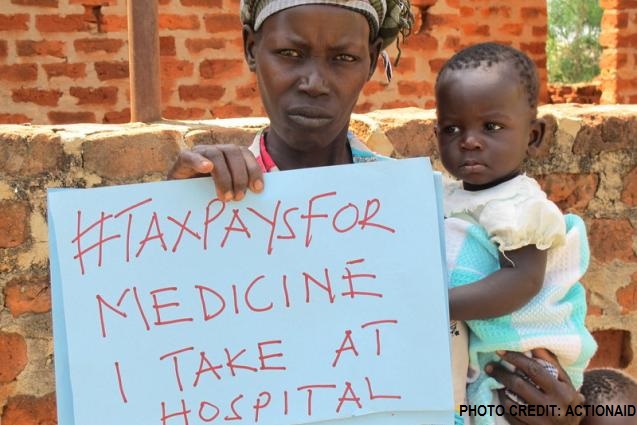Pharmaceutical entrepreneur, Martin Shkreli, a former CEO of biopharmaceutical company Retrophin Inc. and currently CEO of KaloBios pharmaceuticals Inc. and Turning pharmaceuticals sparked controversy around the world after raising the price (5000% increase ) of Pyrimethamine (Daraprim), a 62 year old drug used mainly to treat toxoplasmosis, a parasitic infection that’s common in AIDS & HIV patients. After being arrested by the FBI, he was released from jail on a US$ 5 million bond. There is a growing concern about huge price increases on older drugs, some of them generic, that have long been mainstays of treatment. Although some price increases have been caused by shortages, most have resulted from a business strategy of buying old neglected drugs and turning them into high-priced drugs. Most world pharmaceutical companies that develop new drugs have monopolies and can decide to up the prices of these drugs.

With so many Martin Shrekli’s in the world, Africa will keep bearing the brunt of gigantic price hikes of drugs because of the high cases of public health diseases ravaging the continent and its reliance on developed countries for drugs and healthcare services. Sub-Saharan Africa accounts for an estimated 69% of all people living with HIV & 70% of all AIDS deaths in 2011. Sub-Saharan Africa carries a disproportionately high share of the global Malaria burden, In 2015, the region was home to 88% of malaria cases and 90% of malaria deaths. In 2014, a total of 42 countries from all continent reported 190,549 cases of cholera to World Health Organization, of which 55% were reported from Africa. Africa is dying due to our healthcare system which has been in comatose and moribund for a long period of time. African States must invest in its healthcare system by allocating more funds to building better health infrastructures and commit to carrying out intensive research on diseases of public health importance.
A funding opportunity is Tax, Africa can sustainably use tax to fund medical research and build better health infrastructures that are well equipped and can service the health needs of its citizens. If we must get serious with our healthcare system in Africa, we must take Tax seriously.
Tax is an ever green subject and there is no better time to talk about it than now. Tax breaks and holidays are so frequent than breakfast in Africa, and we need to correct this injustice.
Nigeria, Africa’s most populous country, has lost out on an astonishing US$3.3billion as a result of an extraordinary 10 years tax break granted by the Nigerian government to some of the world’s biggest oil and gas companies: Shell, Total and ENI. The forgone Tax revenue from Shell is 25.6% share (US$ 1.668 billion), Total is 15% share (US$ 997 million) and Eni is 10.4% share (US$ 677 million) making a whopping sum of US$ 3.3 billion. This tax break granted in 1990 (when Nigeria was still under military rule), kicked in 1999, lasted 10 years, and its impacts are still being felt. The US$3.3billion is the equivalent of twice the Nigerian Healthcare budget for 2015, in a country where almost 15 out of 100 children die before their 15th birthday.

This massive tax break was a triple whammy. First came a five year tax holiday granted to most international energy investors in Nigeria; second, an extension for a further five years exceptionally allowed for this particular deal, and third, tax allowances that would have been used during the tax holiday were rolled over and exempted the companies from tax for a further two years. We must ask critical and uncomfortable questions.
Was it necessary to provide these multinational companies with a decade long tax break? What explanations are available for the casualties which more than 60% of people in Nigeria who are poor and can’t afford medical services face?
The Nigerian parliament must demand that the executive arm of government follows up on the previous government’s statement of intent to review the tax incentive practices in Nigeria. Tax incentives must be based on a thorough cost-benefit analysis, including an assessment of impact on the poor and vulnerable groups. The analysis must be made subject to public debate, scrutiny and parliamentary oversight. There is a need to create a public policy framework for granting tax incentives in Nigeria. Government must ensure that they do not grant discretionary tax incentives and publish an overview of the costs of tax incentives to Nigeria, also publishing the terms of contracts with companies in the oil and gas sector.
He who fails to plan, plans to fail. If we must secure the future of generations to come we must act now by harnessing tax as a resource to be injected into our healthcare system.
REFERENCES
- dailymail.co.uk
- nytimes.com
- who.int
- Leaking revenue: How big tax break to European gas companies has cost Nigeria billions by ActionAid

Adequately written sir John. Thanks for this post about tax and the need for consistent action to eliminate tax injustice.
LikeLiked by 1 person